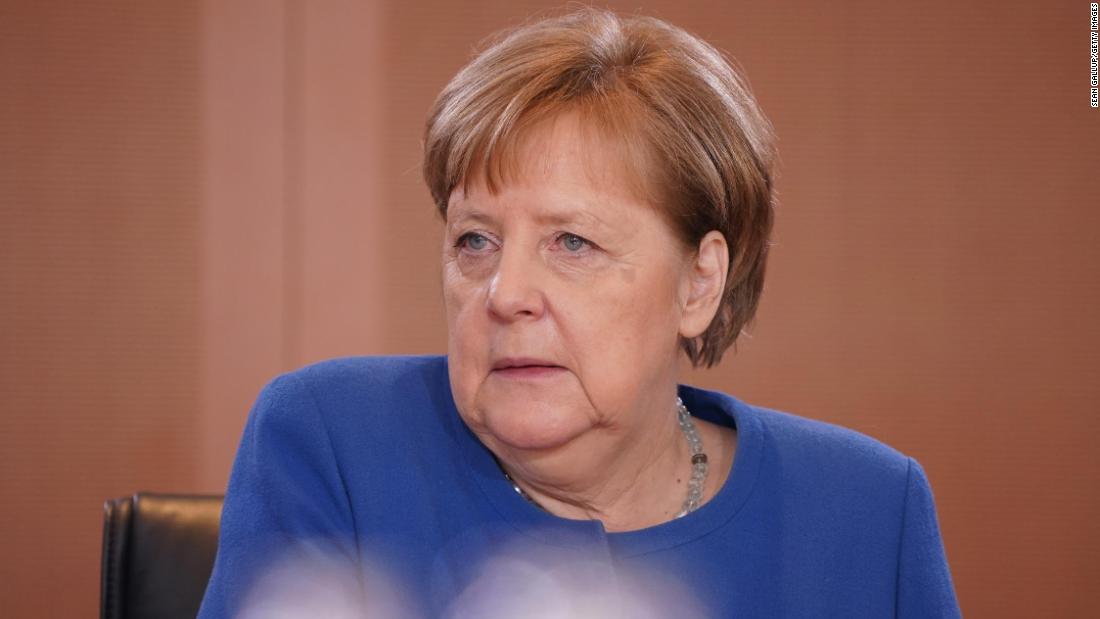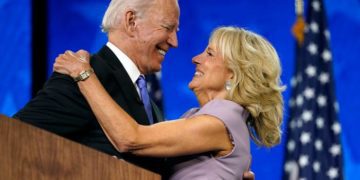[ad_1]
But, so far at least, the German system has held its own, and Merkel has maintained her grip — in typically understated fashion. In particular, her measured addresses to the nation have contrasted sharply with Trump’s raucous daily briefings, which have roiled stock markets and alarmed health experts.
“How many loved ones will we lose, how high will the price be,” asked Merkel, in one of her most emotional addresses, on March 18. In an appeal for everyone to work together, she added: “It is in our own hands to influence the outcome of this crisis. I am convinced that we will manage to act responsibly to save lives.”
Unified approach
Merkel’s words helped unify Germany behind the government’s response. The governor of the powerful state of Baden-Wuerttemburg, Winfried Kretschmann of the Green Party, which is a rival of Merkel’s conservative CDU, drew a scathing comparison between Germany and the US: “We can see in the United States that some governors are taking matters into their own hands when there is someone at the helm who at first denied all of these threats. Something like that is completely out of the question here, that is why we are well equipped for this crisis.”
It is too early to make final assessments, but Germany’s response is looked upon with envy around the world. While the country has a large number of confirmed COVID-19 cases, the death toll remains remarkably low and the health system remains robust.
After a meeting with state leaders Wednesday, Merkel announced that the country was ready to start carefully scaling back its lockdown. Many shops will be allowed to reopen next week, and schools will gradually reopen beginning early next month, though other restrictions will remain in place.
“She’s a diplomatic leader,” says Jan Techau, a senior fellow at the German Marshall Fund, noting her ability to generate consensus among the country’s strong state governors. “She can actually take a step back, become almost invisible and become the power-broker in the system. This has been her approach for the last 15 years, and it is especially useful in these kinds of moments when you have a crisis where you have to bring these people together where so much is at stake.”
Governors shape Merkel’s plan
Federalism is as entrenched in Germany as it is in the United States. The chancellor in Berlin cannot force the governors of the nation’s 16 states to enforce social distancing measures, temporarily close restaurants and cafes, or shut down schools and universities. But they have gone along with, and helped shape, the common approach which Merkel said would constantly be re-evaluated to ensure people’s freedoms are not unnecessarily impeded.
“We know that our policies can only be effective if we closely coordinated them between federal government and the states,” Merkel said in the early stages of the response to the pandemic. The success of Germany’s approach to combating coronavirus would not have materialized if politicians on both state and federal levels had not set aside their differences.
The head of Germany’s largest state, North Rhine-Westphalia, Armin Laschet, says Germany’s strong and unified reaction to the pandemic and the barrage of measures adopted across the country show that “federalism is capable of acting.”
Merkel has been rewarded for the Germany’s strong and efficient response. Her approval ratings have increased dramatically and she is currently the most popular politician in the country. But Merkel hasn’t been bragging. Techau, of the German Marshall Fund, believes success in a decentralized, federal system comes down to exactly that: Less talk, more leadership.
“There must be somebody who is the national face of the crisis response. That’s what a chancellor that’s what a president are there for. And you have to play that role. And you best play it by acknowledging that you are not the master, who’s in charge of everything, but who, you know, needs to personify the unified responds with the country.”




















